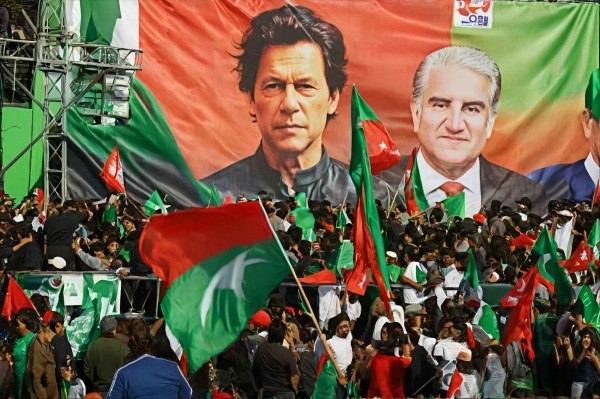Iran’s Plan to Strike Back Against the U.S.
Iran’s Military Preparations Following U.S. Attacks
Loading...

Chris Patten, the current chancellor of Oxford University, announced in February that he would be stepping down.
In a surprising move, Imran Khan, the former Prime Minister of Pakistan currently imprisoned, has applied to become the next chancellor of the prestigious University of Oxford. This announcement comes after the resignation of Chris Patten, who has held the position since 2003. Khan's application was formally submitted through Sayed Zulfikar Bukhari, a spokesperson for Khan's political party, Pakistan Tehreek-e-Insaf (PTI), via the social media platform X.
A Symbol of Resilience
Despite being incarcerated for over a year on various charges, Khan remains steadfast in his commitment to his principles and the causes he champions. Bukhari emphasized that Khan's application reflects his enduring dedication to his ideals, stating, “Imran Khan had given instructions that he would like to submit his application and now the application scrutiny will take place”. The chancellor's role, while largely ceremonial, carries significant prestige and influence within the university.
Bukhari further noted that Khan's potential election as chancellor would be a historic achievement, marking him as the first individual of Asian descent to hold the position. He expressed that Khan's appointment would not only be a milestone for Pakistan but also a significant accomplishment for Asia and the global community.
The Role of Chancellor
The chancellor of Oxford University is elected by a body known as **Convocation**, which consists of all former students who have been awarded a degree. The role involves chairing the committee that appoints the vice-chancellor and participating in fundraising and advocacy efforts for the university. The election process for the new chancellor is set to take place at the end of October, with the list of candidates remaining confidential until then.
Khan's Journey
Imran Khan, who graduated from Oxford in 1975 with a degree in philosophy, politics, and economics, has had a multifaceted career. Before entering politics, he was a celebrated cricket player, leading Pakistan to its first World Cup victory in 1992. His life has been marked by a blend of celebrity and philanthropy, including a tenure as chancellor of the University of Bradford from 2005 to 2014.
Khan's political career began in earnest when he founded the PTI party, eventually serving as Pakistan's prime minister from 2018 until his ousting in 2022 through a vote of no confidence, which he claims was orchestrated by the military. Following his removal, Khan launched a comeback campaign that criticized the military establishment, drawing large crowds in support. However, his political journey took a drastic turn when he was imprisoned in August 2023 on charges ranging from corruption to inciting violence.
Political Context and Implications
Khan's imprisonment has been a contentious issue, with many supporters arguing that the charges against him are politically motivated, aimed at sidelining him from power. His application for the chancellorship comes at a time when he remains a polarizing figure in Pakistani politics, with his party facing significant challenges.
As the election for the chancellor approaches, Khan's candidacy is expected to generate considerable attention, not only due to his high-profile background but also because of the implications it holds for his political future and the broader political landscape in Pakistan. The outcome of this election could serve as a litmus test for Khan's enduring popularity and influence, both in Pakistan and internationally.
Editor
Iran’s Military Preparations Following U.S. Attacks
Troops remain in five strategic locations, raising fears of renewed tensions and long-term occupation.
Opposition forces have taken control of the capital after a significant offensive. Here is how it unravelled.
